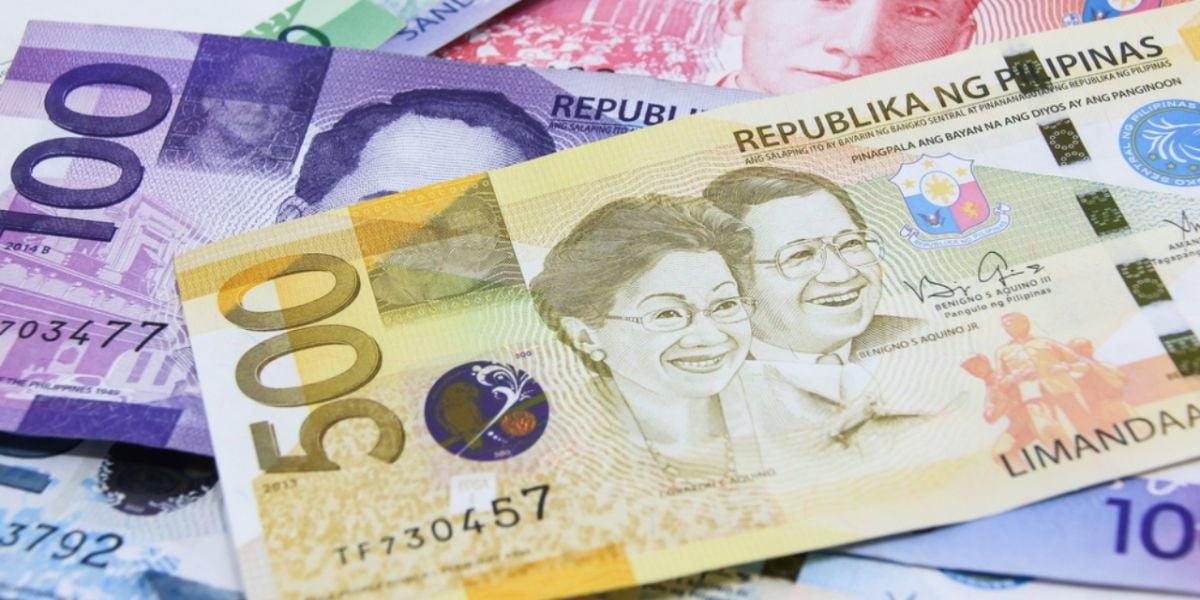
To answer the most common question, yes, expats can open a bank account as long as they have a valid resident visa and resident address in the Philippines. If you have made a move to the city or the rural provinces, you will need to establish a financial life as a student, professional, investor, or retiree. This article will look at how to open a Philippines bank account as an expat/foreign resident, which bank to choose, the type of accounts available, and any issues that may arise.
It is not the easiest of processes to open a bank account in the Philippines, yet if you are prepared and with the correct documentation on hand, it should be achievable.
Overview of finances in the Philippines
It is widely known that the official currency of the Philippines is the peso. Notes come in denominations of 20, 50, 100, 200, 500 and 1,000 PHP. One peso is equal to 100 centavos, and coins are issued in 10, 5 and 1 PHP, and 50, 25, 10 and 5 centavos. Nowadays, Filipinos also regularly transact through virtual money wallets such as GCash.
The Philippine banking industry provides financial services to millions of individuals and businesses. The industry has seen exponential growth in the past three years and has played a crucial role in enabling the country's economic growth and development.
Internet banking is available 24/7 through most major national and international banks in the Philippines, and the regular banking weekdays are Mondays to Fridays. On these days, banks transact business for at least six (6) hours each day, normally 9-3 pm or extended to 9-5 pm.
Choosing which bank you wish to open an account with is an important decision and one which can make your new life in the Philippines either easier or more difficult. The three options are an international bank (maybe one where you already have an account in your home country), a national Philipino banking institution, or a small rural bank. It is strongly recommended to choose one of the first two options as small rural banks do not normally offer the type of services that are necessary for a modern online world- no online banking, no credit cards, and can be prone to closures.
How to open a bank account in the Philippines as an expat
To open a bank account in the Philippines, you have to visit a branch, sign forms, and submit a few identification documents in order to prove your identity and your residency.
Here are the documents you need, as a rule of thumb:
Immigration documents such as your Alien Certificate of Registration Card (ACR) or, in some cases, the Immigrant Certificate of Registration;
Passport or ID;
Proof of address, such as rental contracts or utility bills;
A minimum initial deposit (amount set by the bank);
5x7 size passport photos (some banks take your picture using a webcam).
Individual cases will vary, and some banks may even require a reference letter from your current or previous bank. They may even contact the said bank to get information. The chances of this happening are lower if you are opening an account with your own bank but abroad.
Can expat residents get a mortgage in the Philippines?
Depending on your specific visa type and if you are a resident in the Philippines, who is married to a Filipina, then a mortgage is possible with certain Philippine banks such as BPI and BDO. This will, of course, depend on every expats individual circumstances.
Opening a bank account in the Philippines as an entrepreneur/ investor
Entrepreneurs/ investors can open an individual, corporate or commercial bank account in the Philippines, provided they have the correct visa requirements, then follow the procedures above for opening an account above. The expat business person should have a Special Investor's Resident Visa (SIRV). You can find further information here.
Can I open a bank account as a non-resident in the Philippines?
If you have been staying in the Philippines for less than 180 days, you are classified as a non-resident alien. Yes, you can open a bank account but only limited to a foreign currency deposit account, such as a dollar savings account. Unfortunately, you cannot open a peso savings account.
Another option is to open a bank account before you arrive with an international bank with operations in the country and, after some time, transfer to a new account by one of the local banks.
Choosing a bank in the Philippines
As a modern nation, the banking system of the Philippines is of international standards, and the selection is a large mix of local and foreign financial institutions - from international banks, national & government banks to rural banking institutions. For expats, it is better to work with international banks, such as Citibank and HSBC, or one of the major Filipino banks, as these will cover most of the nation and generally be easier to work with for newcomers.
Here are 4 of the largest national banks in the Philippines:
Landbank of the Philippines: With a large network of branches and ATMs, this government bank is a popular option with savings accounts, debit and credit cards, insurance and loans. Some Landbank cards come with perks such as cashback. One interesting feature of Landbank is that they have international remittance stores all over Asia and some in the Middle East and Europe.
Banco de Oro, also known as BDO: With 1,400 branches and 4,400 ATMs all over the country, BDO is the biggest bank in the Philippines. As a full-service bank with current, savings, investment and multi-currency accounts, they are also convenient thanks to their branch & ATM networks which are extensive. Some accounts come with a lot of perks, such as cashback from some retail establishments and discounts from others. Another advantage of being a BDO client, if you are a regular traveler within Asia, is that they have offices in Japan, China and Korea. Finally, they have a phone-based help desk and online banking as standard with all accounts.
Metrobank: This is another large popular bank in the country with a large network of ATMs (over 2300 nationwide) and branches (over 950 nationwide) and a full product offer including personal and private banking, accounts for small businesses, investors and services such as savings accounts in foreign currency and remittances too. You have the possibility of getting debit cards, credit cards with travel insurance, and you can take cash out of ATMs and POS terminals by Cirrus and Maestro. You are also to open accounts from abroad, and some accounts are interest-earning.
Bank of the Philippine Islands: With locations all over the Philippines and quality online and phone banking, this is a popular bank with a lot of account options for individuals, entrepreneurs, small businesses and investors alike. BPI accounts come with cards, SMS notifications, cheques are cleared as cash, and accounts may earn interest.
As mentioned, it is not the easiest of processes to open a bank account in the Philippines, yet if you are prepared and with the documentation on hand, it should be a doable task. Beware of branches willing to bend the rules to have you as a customer, as it could point to a bigger problem in the long run. Refraining from breaking the legal system as an expat is definitely a good idea.
How safe are my deposits in the Philippines?
Deposits are insured. Similar to the FDIC of the United States, the Philippines' PDIC, or Philippine Deposit Insurance Corporation, insures your deposit of up to 500,000 Philippine pesos per depositor. This is comparatively much less than FDIC's $25,000 per depositor, per insured bank, for each account ownership category standard insurance amount.
The virtual bank account alternative for the Philippines
Sending money abroad is always expensive if you use a bank because they are large institutions with large costs and intermediaries are required to get the funds from point A to point B. It makes sense that they often charge a percentage for a simple international remittance thanks to currency conversion fees. With the recent surge of online money wallets such as WISE, Revolut, Monzo or cryptocurrencies, there are now many alternatives to the traditional high street bank.
Useful links:
We do our best to provide accurate and up to date information. However, if you have noticed any inaccuracies in this article, please let us know in the comments section below.











